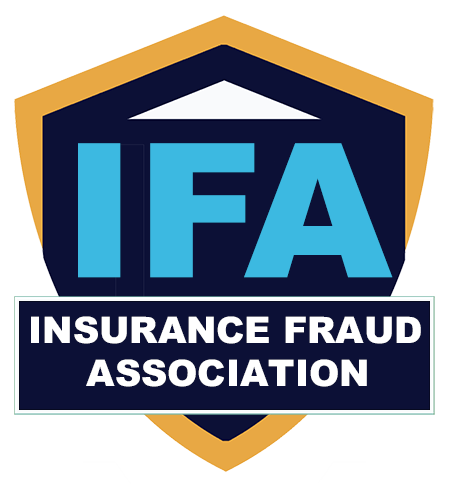The department of insurance identifies insurance fraud as a grave issue affecting not just the insurance industry and policyholders, but also the entire economy. Different types of fraud occur in the insurance industry, and the effects are far-reaching. Understanding the depth of the insurance scams can aid in fighting this type of fraud effectively and mitigate its consequences.
What is insurance fraud?
Insurance fraud, a type of fraud, involves a range of illegal activities committed with the intent of defrauding insurance companies. It can occur in various types of insurance, including auto insurance, workers’ compensation, and property and casualty insurance. The fraudulent acts can be categorized into soft insurance fraud, where claimants exaggerate legitimate claims, and hard fraud, involving entirely fabricated claims.
Defining insurance fraud
Insurance fraud is broadly defined as any act committed with the intent to deceive an insurance company (or insurer) for financial gain. This insurance scam involves distorting insurance information, presenting false claims, and deliberately destroying property to stake an illegitimate claim.
Types of insurance fraud
Insurance fraud occurs in various ways like staged accidents, exaggerated injuries, arson, and falsified documentation. Health care fraud, workers’ compensation fraud, and life insurance fraud are also prevalent forms of fraud within the industry.
Examples of insurance fraud
Instances of insurance fraud occur ranging from individuals overemphasizing their injuries from a vehicle accident to coordinated crime rings planning large-scale fraud schemes. At times, national health care anti-fraud association identifies health plan providers who inflate bills or deliver unnecessary services to enhance their profits. ###
How does insurance fraud impact the industry?
The impact of insurance fraud extends beyond financial losses, affecting the stability and trust within the insurance industry. Moreover, this type of fraud results in increased insurance premiums and operational costs for insurers.
Cost of insurance fraud
Insurance fraud costs billions of dollars annually, leading to higher premiums for policyholders and reduced profitability for insurance companies. The financial load is ultimately borne by authentic insurance policy holders and the larger economy.
Impact on insurance companies
Insurance scams place a strain on insurance companies by increasing their claim payouts and operational expenses. Insurers are compelled to invest in stringent measures to fight insurance fraud, diverting resources from other key operations.
Combatting insurance fraud
The Coalition Against Insurance Fraud and other industry organizations form a crucial part of the insurance fraud bureau by advocating for robust regulations, offering training for fraud investigators, and promoting public consciousness about the repercussions of insurance fraud.
What are the consequences of committing insurance fraud?
Individuals involved in insurance fraud face severe legal repercussions, which may include imprisonment, fines, and restitution to the defrauded parties. Moreover, committing fraud can tarnish their reputation and result in long-term financial consequences.
Legal repercussions of insurance fraud
State insurance departments and law enforcement agencies actively prosecute insurance fraud cases to uphold the integrity of the insurance system and deter potential fraudsters. The severity of penalties is intended to deter individuals from attempting fraudulent activities.
Effects on policyholders
Insurance fraud can harm genuine policyholders by eroding the trust and integrity of the insurance system. It may lead to increased skepticism from insurers, delays in legitimate claims processing, and ultimately impact the accessibility and affordability of insurance coverage.
Role of national insurance crime bureau
The National Insurance Crime Bureau (NICB) collaborates with law enforcement agencies, insurance companies, and other stakeholders to investigate insurance fraud. It plays a pivotal role in uncovering fraudulent activities and bringing the perpetrators to justice.
How can individuals report insurance fraud?
Reporting suspected instances of insurance fraud is essential in combatting this pervasive issue. It involves the active involvement of fraud bureaus, insurance agents, and the cooperation of the public.
Reporting to the fraud bureau
Fraud bureaus provide a platform for individuals to report suspected insurance fraud. They investigate the reported cases and coordinate with law enforcement to take legal actions against the fraudsters.
Role of insurance agents in detecting fraud
Insurance agents are at the frontline in detecting potential fraud indicators during the claim process. Their observations and insights can contribute to uncovering fraudulent activities early, preventing financial losses for the insurance companies.
Efforts by insurers to fight fraud
Insurance companies adopt advanced technologies and data analytics to identify patterns associated with fraudulent claims. They also collaborate with industry organizations to share insights and best practices in combatting fraud effectively.
Is insurance fraud prevalent in specific types of insurance?
Insurance fraud may occur in various lines of insurance, with specific types experiencing higher incidences of fraudulent activities than others.
Auto insurance fraud
Auto insurance fraud is a significant concern, encompassing staged accidents, vehicle damage exaggeration, and false injury claims. Such fraudulent activities contribute to increased premiums for all policyholders.
Workers’ compensation fraud
Fraudulent workers’ compensation claims impose substantial financial burdens on employers and insurers. They may involve faking injuries or falsely claiming work-related disabilities for personal gain.
Property and casualty insurance fraud
Property and casualty insurance fraud includes staged property damage, inflated loss claims, and deliberate destruction of property to claim insurance benefits. It can lead to extensive financial losses for insurers and genuine policyholders.
Q: What is insurance fraud?
A: Insurance fraud refers to the act of intentionally deceiving an insurance company or agent in order to receive a financial benefit to which one is not entitled. It can take various forms, including soft fraud and hard fraud.
Q: What is the difference between soft fraud and hard fraud?
A: Soft fraud, also known as opportunistic fraud, typically involves exaggerating a legitimate claim for a larger payout. Hard fraud, on the other hand, involves deliberately staging or causing a loss in order to collect insurance money.
Q: How do insurers fight fraud?
A: Insurers combat fraud through various measures, such as investing in fraud detection technology, collaborating with law enforcement agencies, and conducting thorough investigations into suspicious claims.
Q: What are the repercussions of insurance fraud?
A: Insurance fraud not only leads to financial losses for insurance companies but also results in increased premiums for policyholders. Moreover, it is considered a criminal offense and can lead to legal consequences for perpetrators.
Q: What are some common examples of insurance fraud?
A: Insurance fraud can occur in various scenarios, such as workers’ compensation fraud, healthcare fraud, property fraud, and selling insurance without a license.
Q: How can insurance fraud be detected?
A: Detecting insurance fraud often involves thorough investigation, data analysis, and collaboration with law enforcement agencies. Additionally, advanced fraud detection tools and technologies play a crucial role in uncovering fraudulent activities.
Q: What is the role of the Bureau of Insurance in combating fraud?
A: The Bureau of Insurance plays a key role in regulating the insurance industry and works to prevent and investigate instances of insurance fraud. It serves as a resource for consumers and insurance professionals in understanding and addressing fraud-related issues.
Q: How does healthcare fraud impact the insurance industry?
A: Healthcare fraud, which includes fraudulent activities related to health insurance claims and benefits, contributes to rising healthcare costs and affects the overall integrity of the insurance system. It undermines the trust and financial stability of healthcare and insurance providers.
Q: What measures can individuals take to prevent insurance fraud?
A: Individuals can prevent insurance fraud by ensuring the legitimacy of insurance offers, verifying the credentials of insurance agents, and promptly reporting any suspicious or fraudulent activities to the appropriate authorities.
Q: What is the significance of workers’ compensation fraud in the insurance sector?
A: Workers’ compensation fraud, which involves making false or exaggerated claims for workers’ compensation benefits, impacts the insurance industry by leading to increased costs for employers and insurers. It undermines the integrity of the workers’ compensation insurance system.
###





